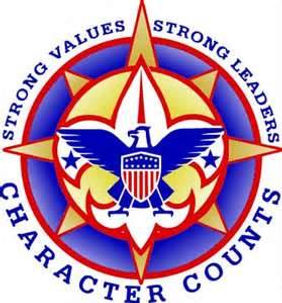
Boy Scout Troop 18

Troop 18 Meets Weekly at
Grace United Methodist Church
1718 Avalon Ave. Joliet, IL 60435
On Monday From 7pm-8:30pm

Patrol Leaders Council (PLC)
The Patrol Leaders' Council (PLC) selects, plans, and leads Troop activities, and is the key to having a Boy-Led Troop.
Troop 18 has PLC Meetings on the 1st Monday of each month
|
||
|
— Robert Baden-Powell/Founder of the Boy Scouts
|
"Boy Scouts is "Boy-Led."
The Patrol Leaders' Council (PLC), not the adult leaders, is responsible for planning and conducting the troop's activities. The Scoutmaster (and assistant Scoutmasters) provide direction, coaching, and training that empowers the boy with the skills he will need to lead his troop. The Troop Committee provides resources to help the PLC.
|
|||
|
— Scoutmaster Handbook p. 12
|
Through the Patrol Leaders' Council, patrols share the responsibility for the patrol's success. They gain confidence by serving in positions of leadership. The Patrol Leaders are elected by their patrols to representative them at the PLC meetings. Each Patrol is always represented at each monthly PLC meeting. If the Patrol Leader is not able to attend, the Assistant Patrol Leader or another Scout from the patrol will attend the PLC. The Patrol Leaders present the ideas and concerns of their patrols and in turn share the decisions of the patrol leaders' council with their patrol members.
The patrol leaders' council is made up of the Senior Patrol Leader, who presides over the meetings; the Assistant Senior Patrol Leaders, all Patrol Leaders, Troop Guides, and others as determined by your PLC. The patrol leaders' council plans the yearly troop program at the annual troop program planning conference. The PLC then meets monthly to develop plans for upcoming meetings and activities.
PLC meetings used to be called "Green Bar" meetings because of the green bars on some of the youth position patches.
The PLC is composed of the following voting members:
-
Senior Patrol Leader (SPL) - Elected by boys in the troop, SPL runs the Patrol Leaders' Council (PLC) meetings.
-
Patrol Leader - Elected by his patrol, the PL represents his patrol PLC meetings and the annual planning conference. Reports PLC decisions to his patrol.
-
Assistant Senior Patrol Leader - Serves as a member of the patrol leaders' council and fills in for the SPL as needed.
-
Troop Guide - Attends patrol leaders’ council meetings with the patrol leader of the new-Scout patrol.
-
Scribe - Attends and keeps a log of patrol leaders’ council meetings. The scribe is a non-voting member of the PLC; however in the practices of some troops, scribes have been granted voting privileges.
At its monthly meetings, the PLC organizes and assigns activity responsibilities for the weekly troop meetings. The troop committee interacts with the patrol leaders' council through the Scoutmaster.
Some troops' PLC includes others who may be assigned tasks and may be voting or non-voting members such as:
-
Instructors - May be assigned training tasks or report on previous training
-
Quartermaster - May report on condition and availability of equipment and needs
-
Librarian - May report on condition and availability of the troop library and needs
-
Historian, Chaplain Aide, etc.
The PLC is guided by the Scoutmaster and has direct support by key Troop Committee members:
-
Troop Advancement Chair - ensures that the unit has at least monthly boards of review and quarterly courts of honor.
-
Troop Equipment Coordinator - work with the Quartermaster with unit equipment.
-
Troop Outdoor/Event Chair - secures tour permits and permissions and serves as transportation coordinator.

